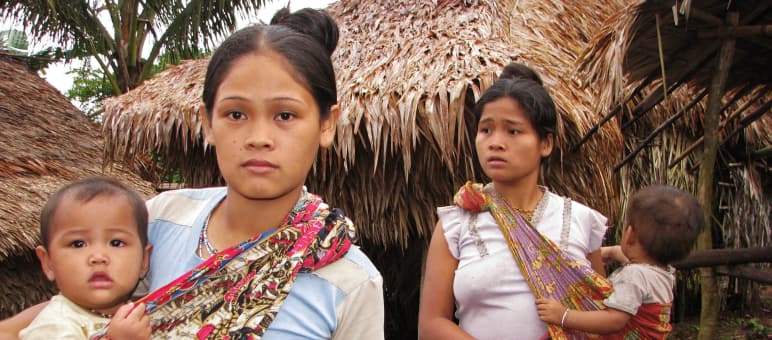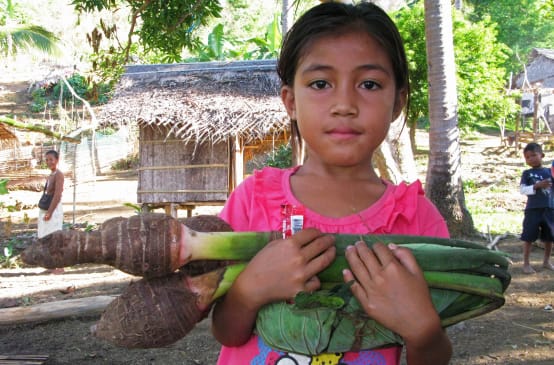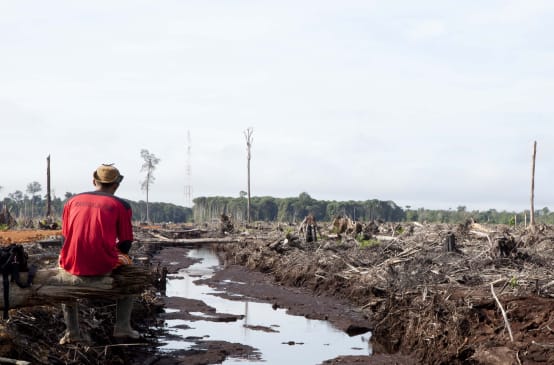
We beat the plantation companies!
Philippines: Our partners scored two major successes on the Philippine island of Palawan: they convinced the government to stop the spread of oil palm plantations in the district of Rizal. Two major coconut palm companies were were also shut down for violating indigenous rights.
The island of Palawan has been a UNESCO World Heritage Site for almost 30 years – its natural treasures on land and underwater are unparalleled in the Philippines. The government is nevertheless promoting economic growth. In practice, that means destroying rainforests – and with them the livelihoods of indigenous communities and small farmers – to make way for mines and plantations.
The southern part of Palawan in particular is a hotbed of the plantation industry, with vast monocultures of oil and coconut palms spreading swiftly across the countryside. In the district of Rizal, home to the largest rainforest areas in the south, our partners from the Coalition Against Land Grabbing (CALG) scored a win against this disastrous development: They succeeded in negotiating a freeze on new oil palm plantations with the district government.
The explanatory statement of the moratorium spelled it out: “While industry benefits from the plantation economy, the spread of oil palms has serious consequences for the environment: loss of biodiversity, erosion, water pollution, health risks for humans and the spread of pests.”
“We are delighted with this result, even though the freeze will expire in five years,” a CALG spokesperson said.
For many years, CALG has been negotiating with the individual districts in southern Palawan to bring about a complete end to the expansion of oil palm plantations. Rizal’s neighboring district Quezon put such a moratorium in place as early as 2015.
CALG was also successful in shutting down two coconut palm companies: The National Commission of Indigenous Peoples (NCIP) banned Green Power Palawan Agriculture Corporation and Lionheart Agrotech from any activity in Rizal until further notice.
In 2016, they had begun clear-cutting forest on the ancestral land of the indigenous Pala’wan without obtaining their free, prior and informed consent as required. The companies had planned a total of 10,000 hectares of coconut plantations.
The NCIP has now ordered the companies to fulfill all of the usual prerequisites before proceeding. In addition to providing information and obtaining public approval, these include assessing the impacts on the environment and local people, drawing up a comprehensive work plan and clearly defining the space requirements of the plantations.
“Since the local communities oppose these plantations, we have good reason to believe that the companies will never be able to produce the required documents and that they will not receive the approval of the indigenous people,” said CALG.
Right from the start, CALG’s primary objective was to stop such plantation companies. “After three years of educational work in the communities, writing petitions, and collecting and documenting evidence, we are finally reaping the rewards of our long-standing resistance.”
Rainforest Rescue has been supporting CALG’s efforts for many years. Please help protect Palawan with a donation to support their vital work.

We need our land, not oil palms!
Stop the expansion of oil palm plantations that is endangering the Philippines' biodiversity, water resources, topsoil and the livelihood of farmers and indigenous people.
Urgent: Palawan’s activists need our help
Support our partners from the Coalition against Land Grabbing (CALG) in protecting Palawan, the Philippines' Last Frontier, against the ravages of industrial agriculture.

Palm oil
Palm oil is literally everywhere – in our foods, cosmetics, cleaning products and fuels. How could it come to this?